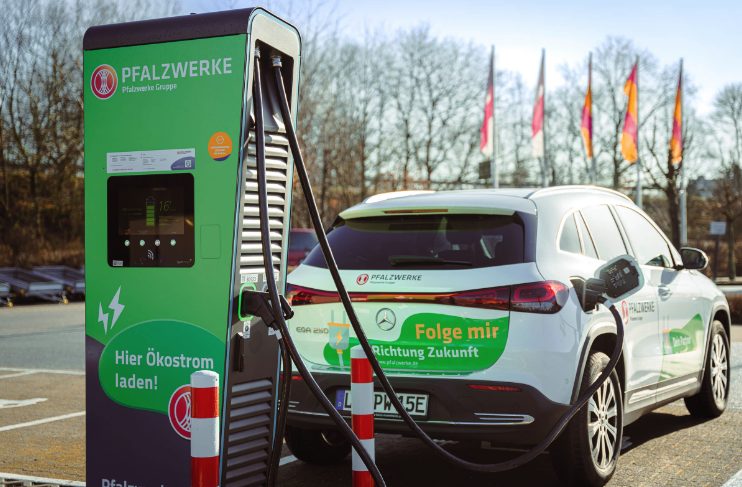The ambitious plans of Pfalzwerke to expand in the electric charging station market have hit a major setback. After investing millions, their partner company EnerCharge has declared insolvency, leaving the energy provider with significant financial losses.

Pfalzwerke, one of the largest municipal energy providers in southwestern Germany, aimed to become a key player in the electric vehicle (EV) charging station market. However, this goal has encountered a serious obstacle. In March, Pfalzwerke proudly announced their entry into the Austrian charging station manufacturer EnerCharge, purchasing a 23% stake for an estimated €12.5 million. Just four months later, EnerCharge is insolvent, and Pfalzwerke faces the potential total loss of their investment. According to the Alpine Creditors’ Association, EnerCharge lacked the financial means to fund a restructuring plan before filing for bankruptcy.
Lack of transparency and management silence
Pfalzwerke has yet to explain why they failed to recognize the risks associated with EnerCharge. Co-CEO Paul Anfang, who leads the company alongside Marc Mundschau, has remained silent on the matter. Despite the initial announcement of their partnership with EnerCharge being featured on their website, there is no mention of the company’s subsequent bankruptcy. The local press has also not covered this significant failure. In response to inquiries, Pfalzwerke’s communications chief issued a prepared statement that sounded like an obituary: “Unfortunately, it was not possible within the circle of shareholders to find a solution for EnerCharge, despite Pfalzwerke’s willingness to make a significant contribution.” The management, now seemingly at a loss for words, has asked for understanding as they refrain from commenting on the details of the business relationship due to the ongoing insolvency proceedings.
This lack of transparency is unlikely to be well-received. The details of the relationship between the municipal energy provider and their Austrian partner are of public interest. The question arises whether Pfalzwerke’s management underestimated the risks during the purchase of the 23% stake in EnerCharge or whether they were unaware of crucial facts or failed to conduct adequate research. Anfang, who manages a public company owned predominantly by local authorities, including the Palatinate District Association and the city of Ludwigshafen, has a responsibility to handle entrusted assets prudently. This is also relevant to Pfalzwerke’s customers and its 1,500 employees.
Expansion plans in the midst of market challenges
Pfalzwerke is not just any municipal energy provider; this company has an annual turnover of around €2 billion. CEO Paul Anfang, who joined Pfalzwerke in 2021 after 13 years at BS Energy in Braunschweig, has ambitions that extend beyond the regional sphere of Rhineland-Palatinate and Saarland. According to the 2023 annual report, the company aims to be an “ambitious, growth-driven, and ecological innovator.” Pfalzwerke, under brands like 123energie and ALDI Grüne Energie, offers electricity beyond the region and has been expanding its EV charging infrastructure in Sweden. As of July 2, four additional fast-charging points were added to the Pfalzwerke network at the Hornbach store in Kristianstad, Sweden, bringing the total to 1,400 public charging points at 330 locations across Europe.

This expansion requires substantial investment without immediate returns. The market, however, is experiencing a downturn. Pfalzwerke’s head of e-mobility, Florian Dommel, confirmed just weeks before EnerCharge’s insolvency that the company was investing millions annually in this sector. Dommel emphasized that profitability would depend on the further uptake of electric mobility. However, this uptake has been slower than expected, leading to difficulties for companies like EnerCharge. Other charging station providers, such as Australia’s Tritium and the start-up Numbat Energy, have also recently gone bankrupt. Market expert Wulf Schlachter, who supports charging station operators worldwide through his consultancy DXBe, estimates that, given the stagnation of the EV fleet in Germany, only five to six charging sessions per station occur daily on average. To be profitable, there would need to be 16 to 18 sessions per fast-charging station per day.
Future prospects and skepticism
The slowdown in the EV market has led to fewer new charging stations being built. Schlachter, a former co-founder of the charging infrastructure provider Ionity, predicts a significant decline in the development of charging stations in Germany. While 32,733 new fast-charging stations for electric cars were built last year, only around 16,000 are expected in 2024, half as many. Schlachter even suggests that this could be the “best-case scenario for Germany,” according to figures from the Federal Network Agency.
Given this challenging environment, Pfalzwerke’s decision to invest in EnerCharge, a company that was previously their supplier, seems particularly ill-timed. The company’s stated goal was to “expand the value chain in an increasingly competitive environment,” but this has gone awry with EnerCharge’s insolvency. Despite the setback, Anfang insists that EnerCharge’s insolvency will not derail Pfalzwerke’s e-mobility plans: “We will continue to pursue our strategic goals and concrete projects for expanding our fast-charging infrastructure in Germany and Europe independently of this. We have established a multi-sourcing strategy to spread and minimize risks, and we are therefore in a stable position.”
Nevertheless, market experts remain skeptical. Sebastian Henßler from the industry portal elektroauto-news questions the wisdom of such large investments by a municipal company into the charging station network: “You have to wonder what drives some of these decisions. Perhaps vanity?” Henßler rhetorically asks, adding that in the international electric infrastructure market, where specialized operators dominate, a player with the core responsibilities of a municipal energy provider is not likely to be taken seriously.









